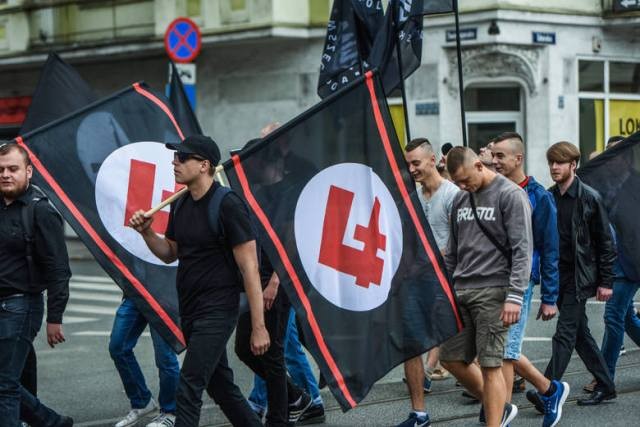The European Jewish Congress expressed “its grave concerns” about the rise of anti-Semitism in Poland and the deteriorating relationship between the Polish government and the local Jewish community.
The European Jewish Congress (EJC) on Thursday expressed “its grave concerns” over the rise of anti-Semitism in the country and the deteriorating relationship between the Polish government and the Jewish community there.
“We have seen a dramatic rise in recent anti-Semitic incidents in Poland, which appear to have coincided with the Polish government closing its communications with the official representatives of the Jewish community,” Dr. Moshe Kantor, President of the EJC, stated.
While other countries across Europe consult with the local Jewish leaders and seek their counsel and coordinate a response to anti-Semitism, “Poland stands out as an example of a leadership which appears to have little interest in opening a dialogue with the Jewish community,” Kantor added.
For around a year, no senior Polish government minister has met with the leadership of Union of Jewish Communities in Poland, the representative organization of Poland’s 10,000 Jews.
The EJC pointed to recent incidents that indicate a rise in anti-Semitism, which appear “to have permeated many layers of Polish society.” These incidents include a public debate during which Polish Television journalist Magdalena Ogórek pointed to the Jewish roots of the ancestors of Senator Marek Borowski; the regular display at state ceremonies of the fascist slogans and flags of the anti-Semitic Falanga National Radical Camp; and member of parliament Bogdan Rzońca from Prawo i Sprawiedliwość writing on social media, “I wonder why, despite the Holocaust, there are so many abortionists among Jews.”
“We hope the Polish leadership will restart engagement with the Jewish community and condemn anti-Semitism in all its forms,” Dr. Kantor said. “There has been a distinct normalization of anti-Semitism, racism and xenophobia in Poland recently and we hope that the Polish government will stem this hate and act forcefully against it.”
The University of Warsaw’s Center for Research on Prejudice publicized research last week which found that acceptance for anti-Semitic hate speech among Poles has risen in recent years.
The number of surveyed Poles who declared positive attitudes towards Jews dropped from 28 percent in 2015 to 23 percent in 2016.
The study found that 37 percent of those surveyed voiced negative attitudes towards Jews in 2016 compared to 32 percent the previous year.
Fifty-six percent said they would not accept a Jewish person in their family, an increase of nearly 10 percent compared to 2014.
Nearly a third said they did not want Jewish neighbors, compared to 27 percent in 2014.
Around 11 percent of adults and 24 percent of younger Poles admitted to making occasional anti-Semitic remarks.
The study was based on a sample of 1,000 adults and 700 youths.
By: World Israel News Staff


